-
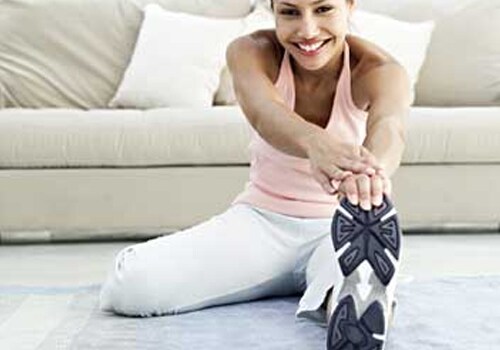
Why is exercise important in diabetes?
People with type of Diabetes, Type I or Type II , can benefit from regular exercise.Those, who exercise regularly, require less medication than usual. The three most important tools used to control Diabetes are diet, exercise, and medication. All these are must Healthy eating and taking medications alone will not successfully control blood sugar levels. Regular exercise is equally important.
BENEFITS OF DOING REGULAR EXERCISE
· Improved blood sugar control
· Reduction in dose of oral medication
· Improves physical fitness
· Improves blood circulation
· Effortless movements
· Reduces the risk of cardiac diseases
· Controls blood pressure
· Helps in maintaining weight
· Relieves stress
-
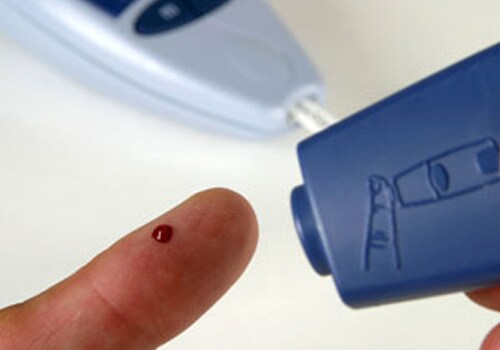
Exercise and Type I diabetes (Insulin dependent diabetes mellitus)
You need to plan your exercise schedule to balance both the food intake and insulin dose. Before beginning to exercise, test your blood sugar, if possible. The results of the test will tell you if there is a need to adjust your insulin dose or to eat a snack. This will prevent hypoglycaemia (low blood sugar levels).
If your blood sugar levels are very high and at the same time urine test shows the presence of ketone bodies, it may indicate that there is very less amount of insulin available for activity. Exercise at this time may be harmful as it may result in increased levels of both blood sugar and ketone levels.
In case of type I diabetes, there are also higher chances of hypoglycaemia at night. A preventive measure for this is to exercise in the morning after breakfast and not to exercise before bed. -

Exercise and Type II diabetes (Non-insulin dependent diabetes mellitus)
Type II diabetes can be treated with diet and exercise alone, or these with medicines (oral hypoglycaemic agents) and/or insulin. People with type II diabetes may also be overweight. Weight loss and regular exercise may reduce the blood sugar, need for medication and enable your body to use insulin better.
For type II clients with high morning blood sugars, exercising in the evening (after four p.m.) may help; it is thought that the evening activity may stop your liver from producing excess sugar during the night. -
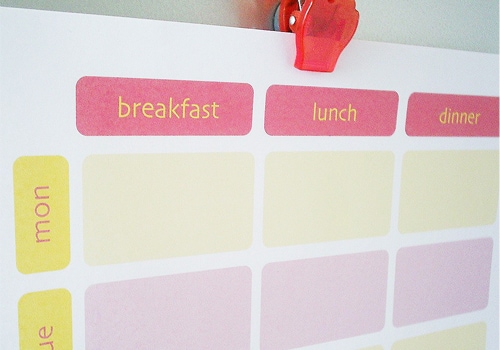
Before you begin
- Since any increase in physical activity can lower your blood sugar, you may need to change your meal plan or medication. Talk to your doctor about making these change.
- Consult your doctor and have a medical check up done, especially if you are over 35 years of age.
- Reduce stress, increase your energy level, and just make yourself feel good.
-
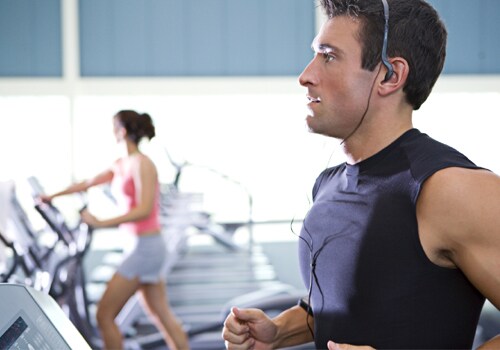
Getting started
· Start slowly and gradually
· Exercise any time of the day
· Wear proper exercise gear (shoes, clothes etc.)
· If you use insulin/medication, check your sugar level before and after exercise
Do not exercise when Fasting , always have little snack before you start. -
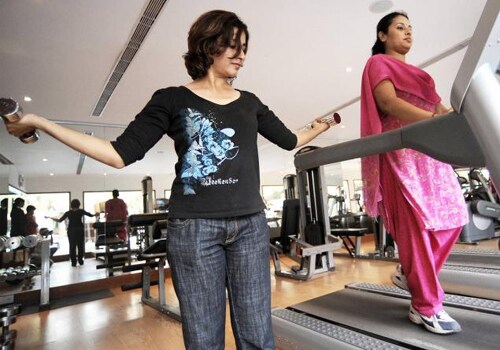
Choosing the right exercise
· Choose activity that you enjoy
· Use stairs instead of elevators
· Aerobic exercises
· Walk, jog and dance
· Swimming, bicycling
· Follow the warm up and cool down protocol. It should be done 10-15 mins before starting and towards the end of the exercise.
· Do low intensity exercises like - walking & stretching
-
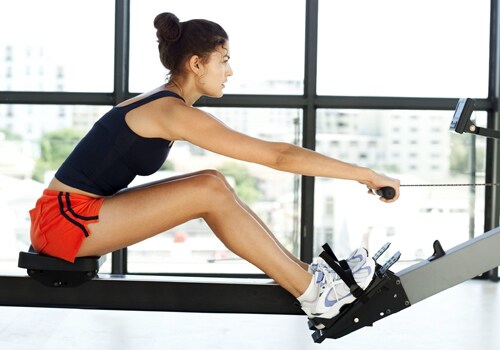
Exercise intensity, frequency and duration
- Intensity: Intensity should be low to moderate
- Frequency: For insulin dependent diabetics-five to seven days a week and for non-insulin dependent diabetics-four to five days a week
- Duration: For insulin dependent diabetics: 20 to 30 minutes per session and for non-insulin dependent diabetics: 40 to 60 minutes per session
-
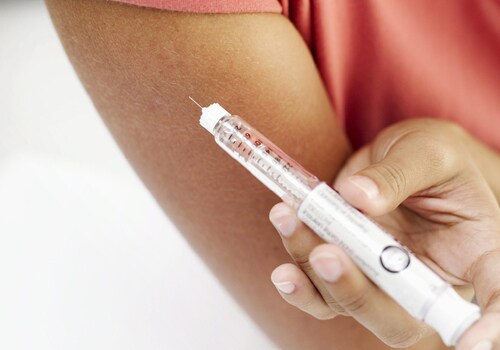
Exercise guidelines
· Avoid insulin on muscles involved in the exercise
· Check blood sugar levels frequently with changing patterns
· Carry carbohydrate rich food or drink in case of hypoglycaemia
· Check feet often for cuts and blisters
· Wear comfortable shoes
· Take extra care when exercising in extreme weathersDrink water before, during and after exercise to avoid dehydration
-
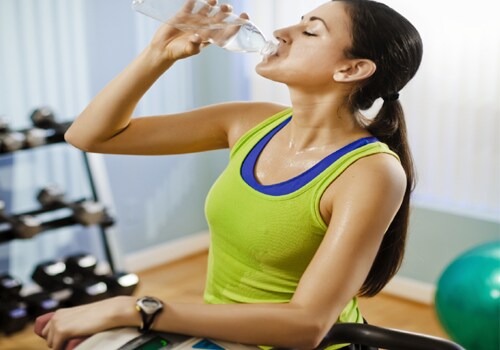
Some exercise tips
- Wear correct footwear
- Avoid dehydration - drink water before/during/after exercise
- Test blood glucose before and after exercise, if possible
- Know symptoms of low blood sugar: shaky, clammy, cold, sweat, weak, irritable and other symptoms


















